Whole Year Calendar 2025: A Comprehensive Overview
Whole Year Calendar 2025: A Comprehensive Overview
Related Articles: Whole Year Calendar 2025: A Comprehensive Overview
- Monthly Calendar 2025 Printable Free Editable
- Calendario 2025 With Weeks In Excel: A Comprehensive Guide
- April 2025 Hindu Calendar: A Comprehensive Guide
- ICalendar 2025: The Future Of Calendar Management In Excel
- 2025 Calendar Queensland Australia
Introduction
With enthusiasm, let’s navigate through the intriguing topic related to Whole Year Calendar 2025: A Comprehensive Overview. Let’s weave interesting information and offer fresh perspectives to the readers.
Table of Content
Video about Whole Year Calendar 2025: A Comprehensive Overview
Whole Year Calendar 2025: A Comprehensive Overview
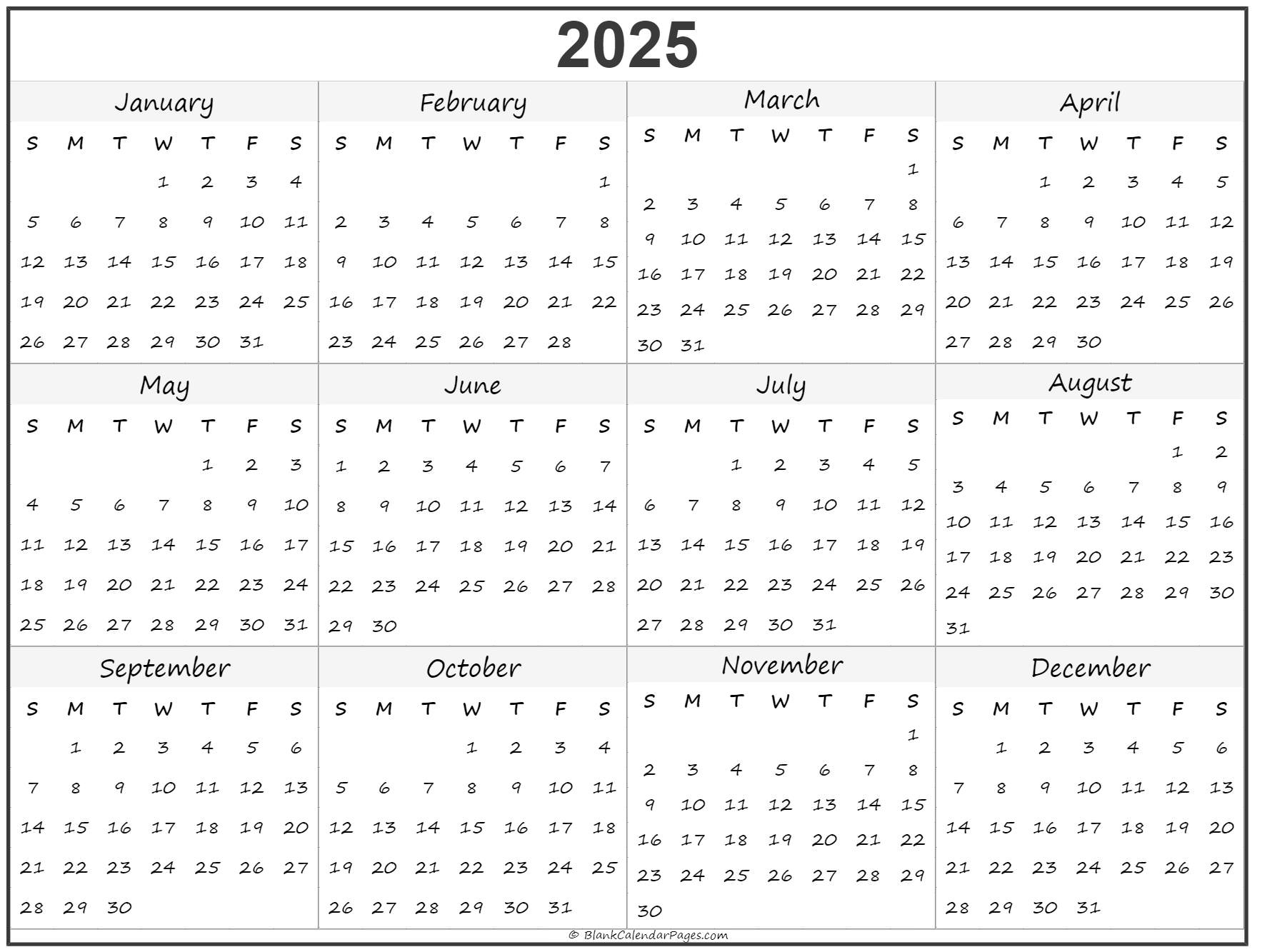
Introduction
The year 2025 is rapidly approaching, and with it comes the need for a comprehensive and reliable calendar. A whole year calendar provides a visual representation of all the days, weeks, and months of the year, allowing individuals to plan and schedule effectively. This article presents a detailed overview of the whole year calendar for 2025, highlighting important dates, holidays, and key events.
Calendar Format
The whole year calendar for 2025 is typically presented in a grid format, with each month occupying a separate row. The days of the week are listed horizontally, with Sunday usually appearing as the first day of the week. Each day is represented by a box or cell, providing ample space for notes, appointments, and reminders.
Months and Days
The year 2025 is a common year, meaning it has 365 days. It consists of 12 months, each with a different number of days:
- January: 31 days
- February: 28 days
- March: 31 days
- April: 30 days
- May: 31 days
- June: 30 days
- July: 31 days
- August: 31 days
- September: 30 days
- October: 31 days
- November: 30 days
- December: 31 days
Holidays and Observances
The whole year calendar for 2025 includes several important holidays and observances that are recognized in many countries around the world. These include:
- January 1: New Year’s Day
- January 20: Martin Luther King Jr. Day (United States)
- February 14: Valentine’s Day
- March 8: International Women’s Day
- March 17: St. Patrick’s Day
- April 1: April Fools’ Day
- May 1: May Day
- May 25: Memorial Day (United States)
- June 19: Juneteenth (United States)
- July 4: Independence Day (United States)
- September 1: Labor Day (United States)
- October 31: Halloween
- November 11: Veterans Day (United States)
- November 24: Thanksgiving Day (United States)
- December 25: Christmas Day
Key Events
In addition to holidays and observances, the whole year calendar for 2025 may also include important events such as conferences, sporting events, and cultural festivals. These events vary depending on the region or country, but some notable examples include:
- January 26: Australia Day (Australia)
- February 12-14: Super Bowl LIX (United States)
- March 7-11: SXSW (United States)
- April 22: Earth Day
- May 18-21: Cannes Film Festival (France)
- June 6: D-Day Anniversary
- July 14: Bastille Day (France)
- August 5-21: World Athletics Championships (Japan)
- September 22-October 4: Rugby World Cup (United States)
- October 12-26: Diwali (India)
- November 11-13: Remembrance Day (Canada)
- December 31: New Year’s Eve
Customization
Whole year calendars can be customized to meet individual needs and preferences. Many online tools and software allow users to create personalized calendars by adding their own events, appointments, and reminders. This functionality enables individuals to tailor their calendars to their specific schedules and commitments.
Benefits of Using a Whole Year Calendar
Using a whole year calendar offers several benefits, including:
- Improved Planning: A whole year calendar provides a comprehensive overview of the entire year, allowing individuals to plan and schedule events well in advance.
- Time Management: By visualizing all the days and weeks in a single view, users can manage their time more effectively and avoid scheduling conflicts.
- Increased Productivity: A well-organized calendar helps individuals stay on track and prioritize tasks, leading to increased productivity.
- Reduced Stress: By having a clear understanding of upcoming deadlines and commitments, individuals can reduce stress and anxiety associated with time management.
- Personalization: Whole year calendars can be customized to meet individual needs, making them a versatile tool for managing personal and professional schedules.
Conclusion
The whole year calendar for 2025 is an invaluable resource for planning, scheduling, and managing time effectively. By providing a comprehensive overview of all the days, weeks, and months of the year, individuals can make informed decisions, avoid conflicts, and stay organized throughout the year. Whether used for personal or professional purposes, a whole year calendar is an essential tool for navigating the complexities of modern life.
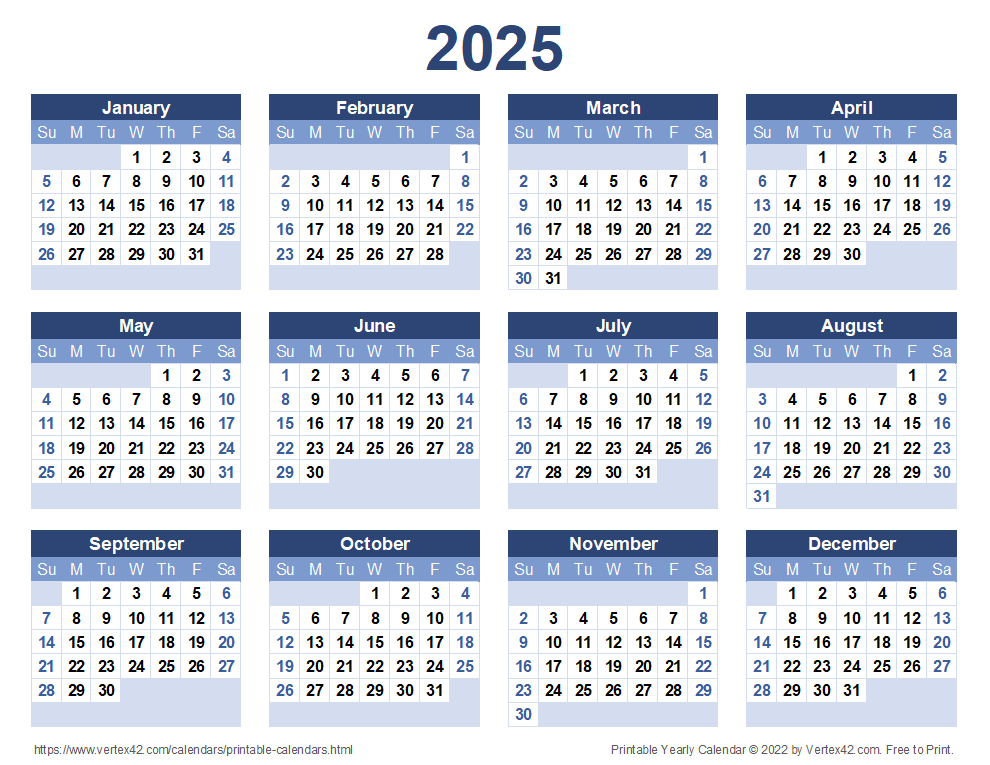
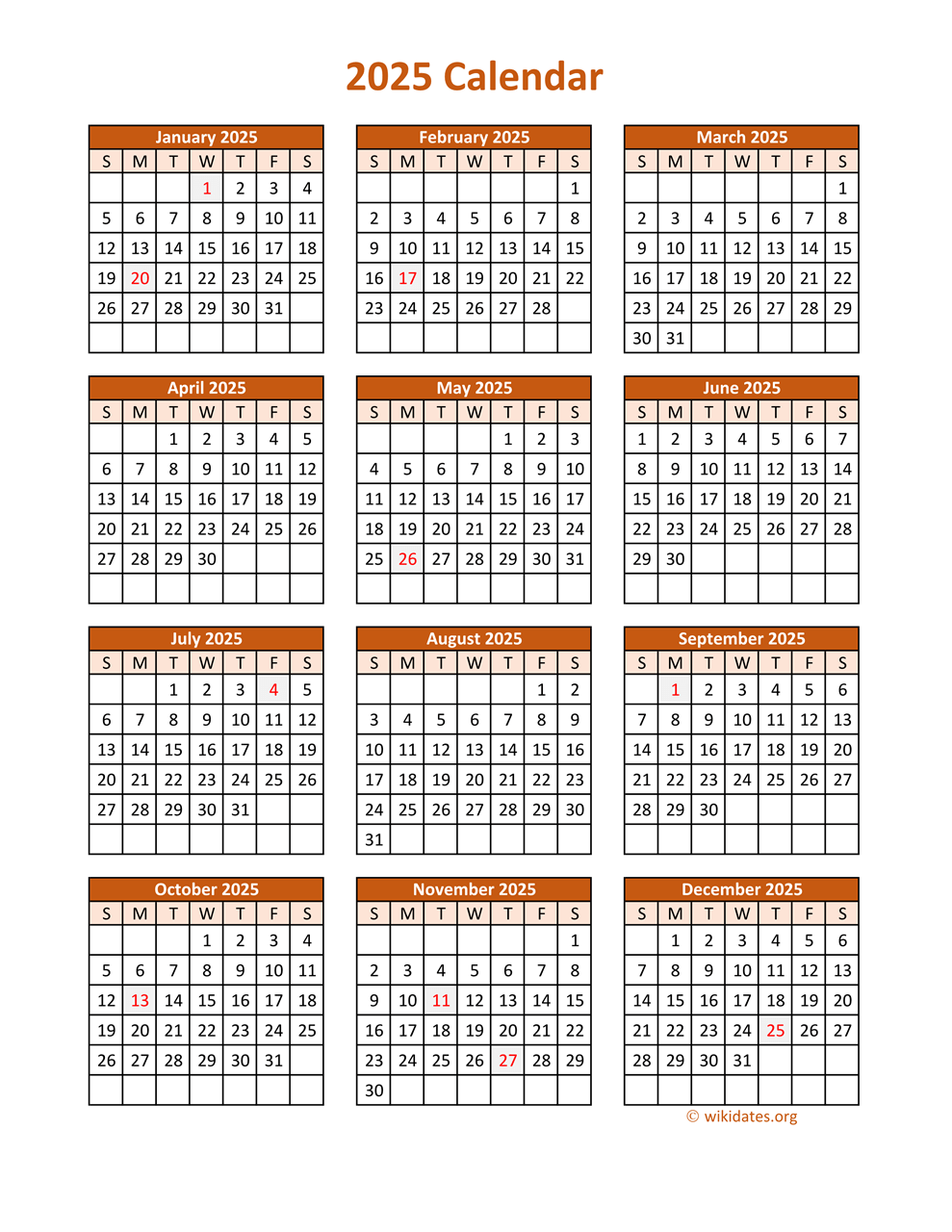

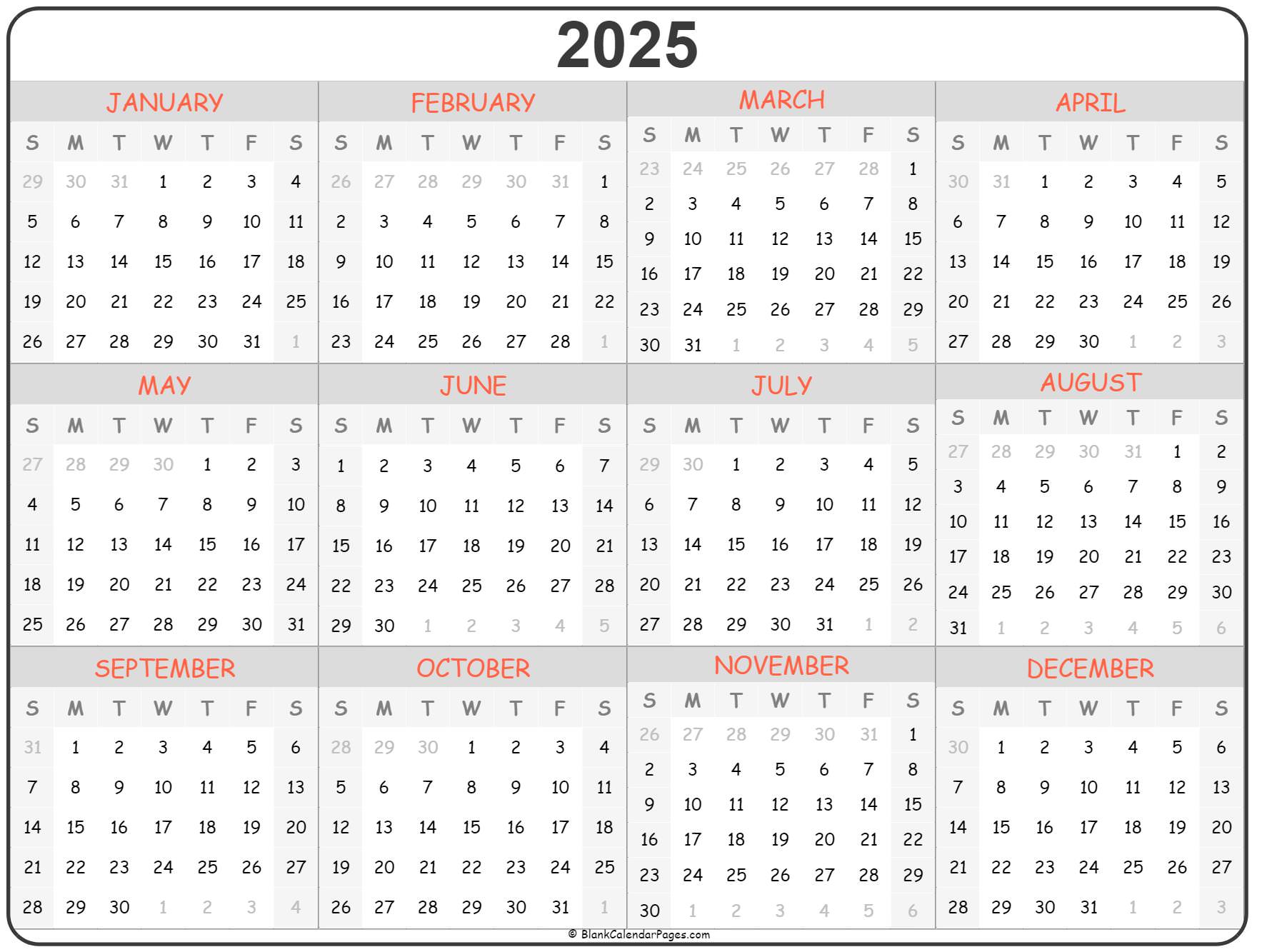

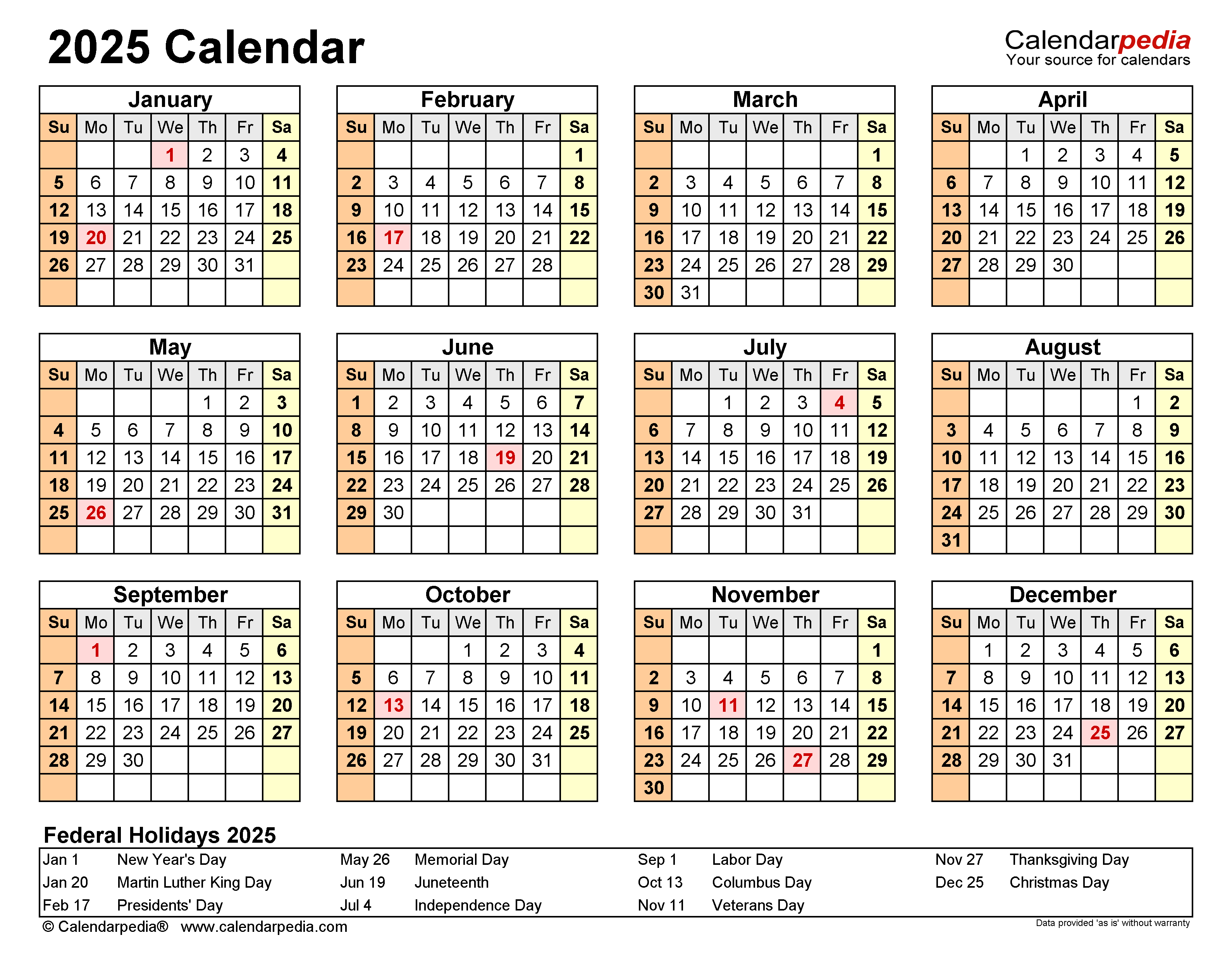
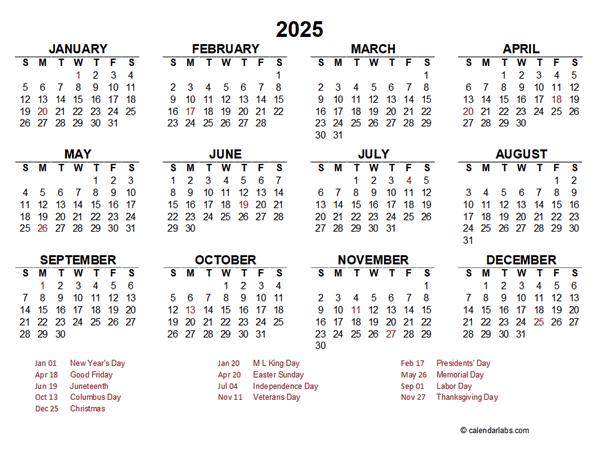
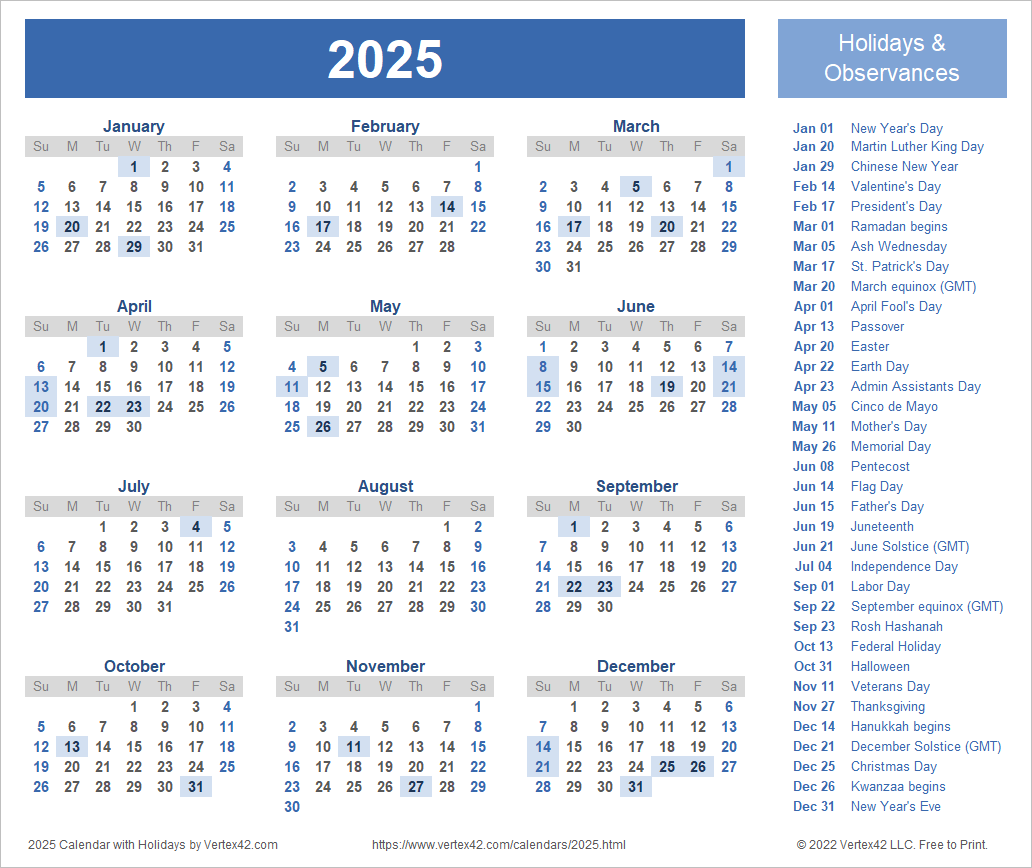
Closure
Thus, we hope this article has provided valuable insights into Whole Year Calendar 2025: A Comprehensive Overview. We thank you for taking the time to read this article. See you in our next article!